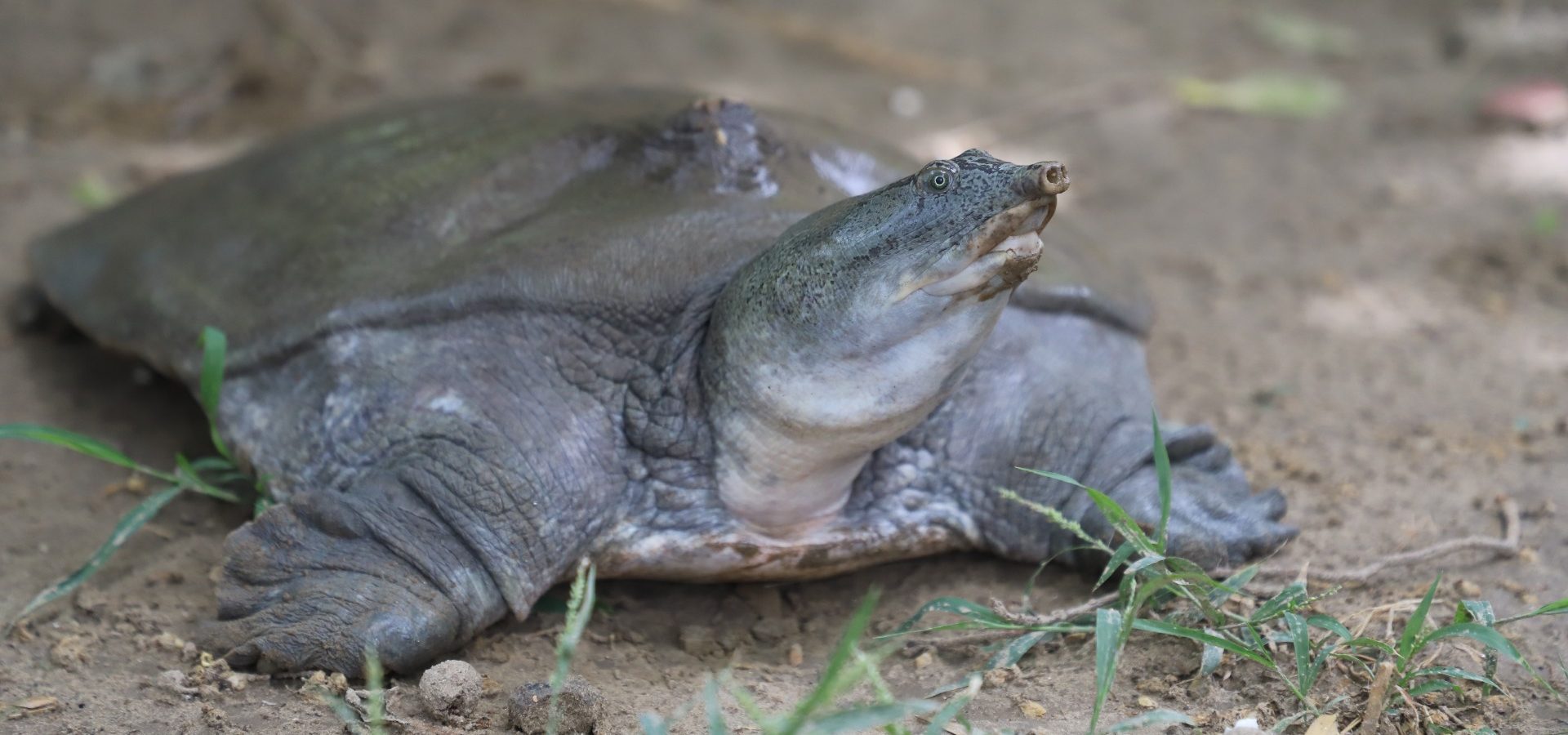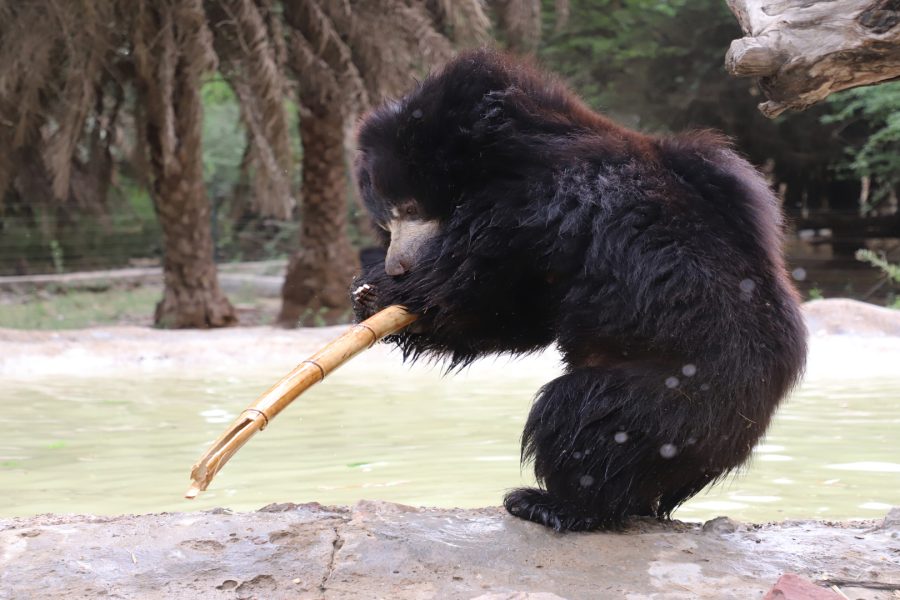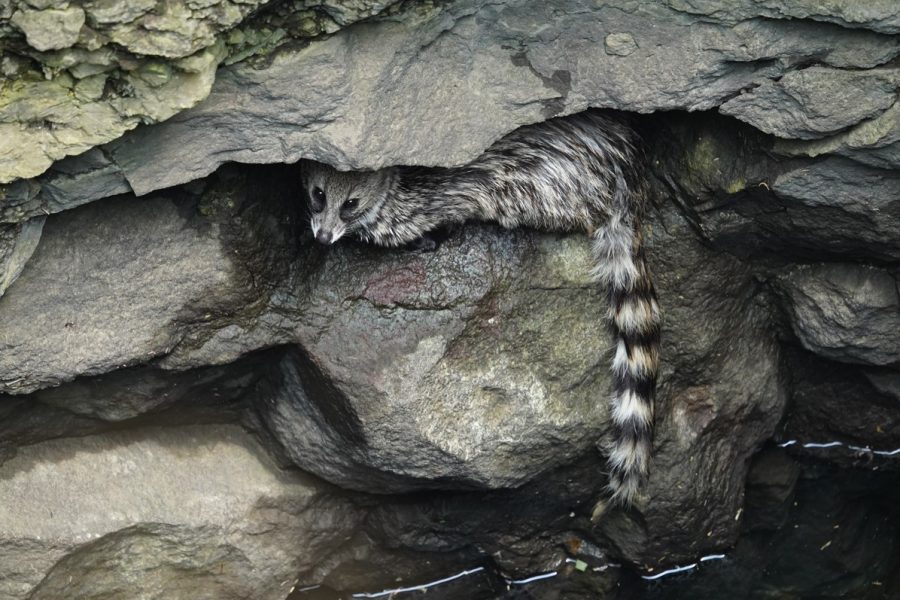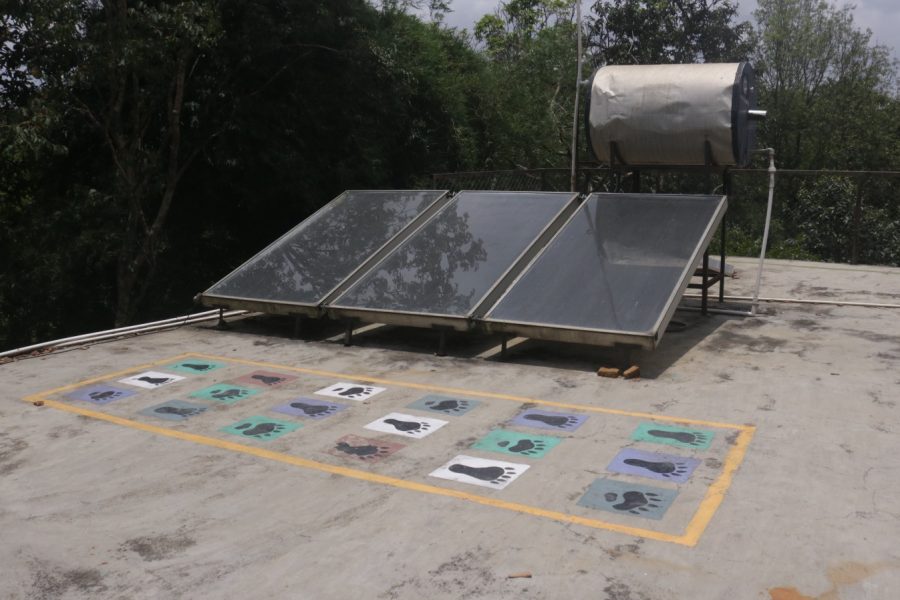Today, of the 350 turtle species in the world, nearly half of them are endangered. With earliest fossils dating back to almost 220 million years ago – to the period of dinosaurs – turtles are the oldest living reptile group to exist currently. These reptiles play a crucial role in the natural world. In the food web, they act as predators, but turtles and their eggs are also important prey for a variety of animals.
They can be found to occupy various types of habitats such as the sea (marine turtles), land (terrestrial turtles), and around lakes, ponds and streams (freshwater turtles). Freshwater testudines feed on algal bloom and some even on dead matter, keeping our water clean. These animals are also known to contribute to seed dispersal and germination. India is home to 24 species of freshwater turtles and here, we will take a closer look at one of them.
Know the Turtle
The Indian Softshell turtle (Nilssonia gangetica), also known as the Ganges Softshell turtle, is a reptile found in freshwater habitats and its distribution is restricted to the Ganges, Indus and Mahanadi rivers in northern and eastern India. Some of the states in which they are found include Assam, Bihar, Jammu & Kashmir, Madhya Pradesh, Uttar Pradesh, Orissa, Rajasthan and West Bengal, to name a few.
This turtle can be easily distinguished by its prominent, tube-like snout and flattened shell. Its external features allow it to perfectly adapt to a riparian habitat (domain around rivers and other water bodies). Their long necks and tube-like snouts help them to extend their nose out of the water to breathe. The compressed shell, on the other hand, streamlines them, thereby making them brilliant and fast swimmers.
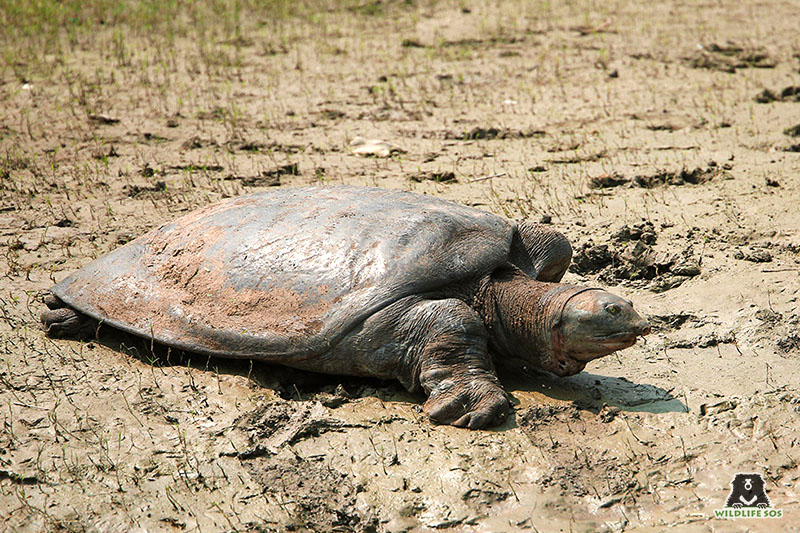
Another feature with which they can be identified is their carapace (upper shell), which is round to oval shaped, and green in colour with a yellow border. Apart from rivers, this large turtle can also be found in streams, large canals, lakes, and ponds with mud and sand bottoms; these reptiles seem to have an affinity for turbid water. Softshells are omnivorous who not only feed on molluscs, insects, fish, amphibians, waterfowl and carrion, but consume aquatic plants as well.
Threats to the Softshells
A report compiled by the Turtle Conservation Coalition in 2011 cites that nearly 7.4% of the world’s 25 most threatened turtles are found in India. To say that the Indian Softshell turtle is in danger would be an understatement, and there are several man-made factors that threaten these endangered reptiles today.
Poaching for illegal wildlife trade, overconsumption for meat, habitat loss, water pollution, closure of canals, introduction of dams, tidal barrages, floodplain drainage and, to some extent, expansion of agriculture are all factors responsible for jeopardising the lives of this species. In the states of Bihar, West Bengal, Chhattisgarh and Uttar Pradesh, turtle meat is widely sold in local markets and they are plagued by the problem of overconsumption.
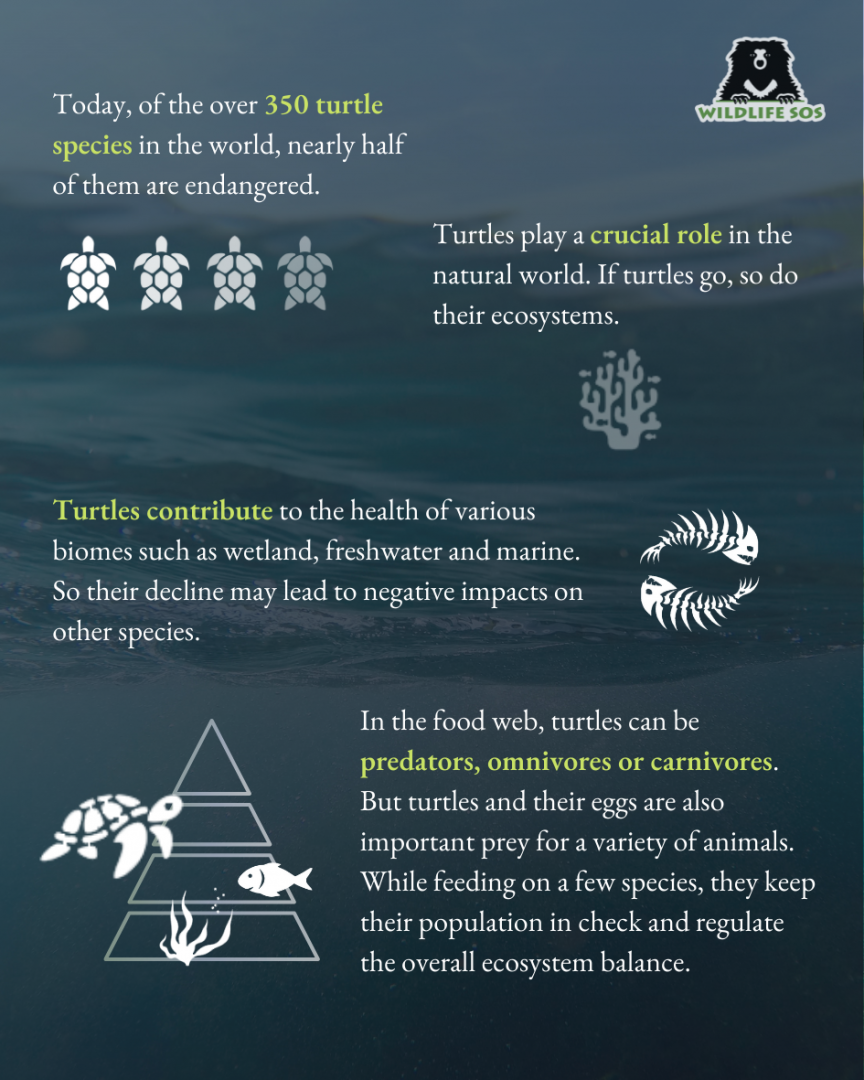
If that’s not enough, there is a massive demand for turtles and turtle eggs for their use in traditional medicines. It is a common mistake to believe that turtle shells possess medicinal and healing properties and that consuming them can cure tuberculosis and various skin diseases. However, there is no scientific or medical proof to support such claims.
The Indian Softshell turtle falls under Schedule I of the Wildlife (Protection) Act, 1972. Poaching or possession of any protected wildlife species and the illegal trade of their body parts is a criminal offence leading to imprisonment for between three to seven years. Additionally, the international trade of this species is prohibited under Appendix I of the Convention on International Trade in Endangered Species of Wild Flora and Fauna (CITES).
Our Work with Softshell Turtles
Wildlife SOS has contributed to the conservation of this endangered species through its life-saving rescues. In May 2022, the NGO chanced upon an Indian Softshell turtle, in the Railway Colony, Cantonment Area of Agra. Weighing nearly 25 kilograms, the turtle was found with ropes around its body stashed inside an unsuspecting jute sack on the side of the road.
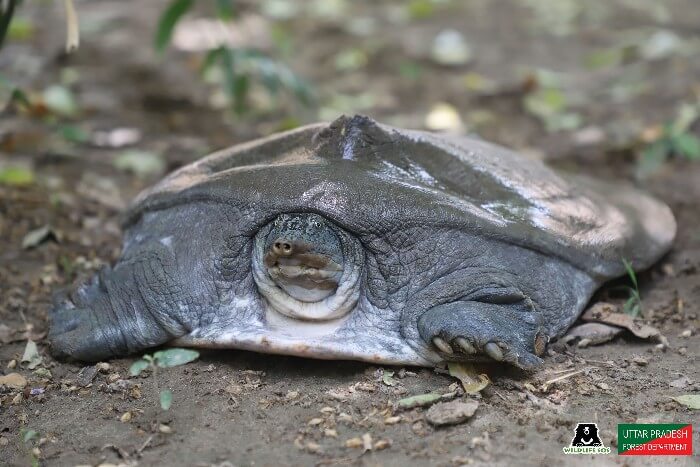
The sack was accidentally chanced upon by a resident of the area and it was only after noticing a slight movement in it that the rescue caller informed Wildlife SOS’ Rapid Response Unit operating out of Agra. The team did not waste a minute to reach the location and bring the distressed animal to safety. Having been exposed to direct sunlight for a long duration, the turtle was under stress and extremely dehydrated. Soon after being rescued, our veterinary team provided intensive veterinary care and medication to stabilise its health.
According to the Range Forest Officer, Agra City Range, this could have been a suspected trafficking case where the turtle was being illegally transported by poachers. With prompt efforts from our rescue team and multiple stakeholders, we helped the turtle recover and released the animal back into its natural habitat. In an almost similar scenario, Wildlife SOS rescued a massive 30-kg Softshell turtle in 2019 which was found on a road in Agra. The giant turtle was later released into the Yamuna river after being kept under observation for a few hours.
With the help of wildlife rescues, as well as our anti-poaching unit ‘Forest Watch’, we assist state forest departments and enforcement agencies to curb the poaching and trafficking of wild animals such as the Indian Softshell turtle. You too can play your part to protect and conserve India’s wildlife. Become a monthly donor for Wildlife SOS and support our work, so that we can save the lives of these animals who deserve to live in the wild.

